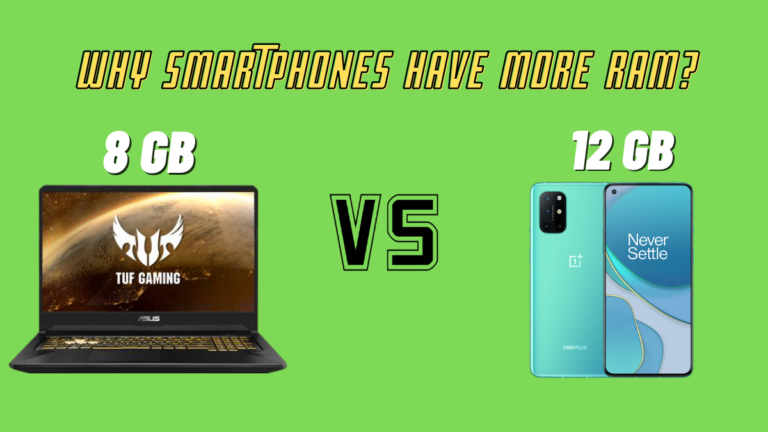Gaming Laptop Vs Desktop: Be Sure Of Your Preferences
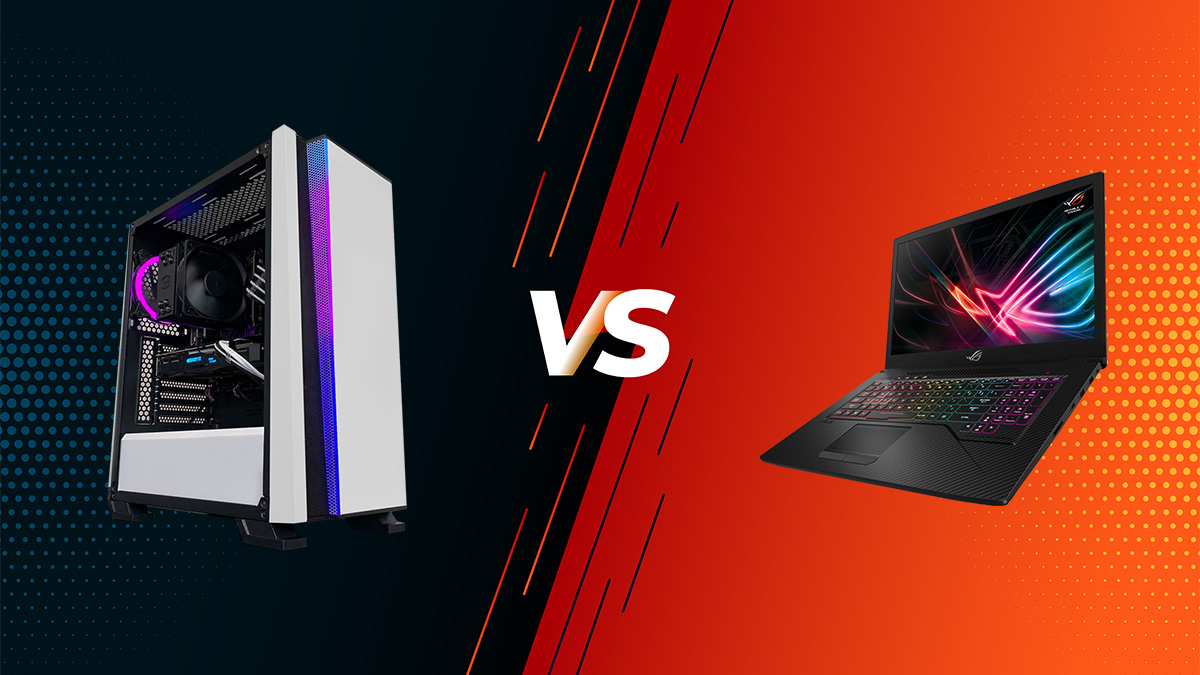
Trends in the gaming industry have severely increased over the past few years, and it’s now more significant than ever. Gaming preferences vary a lot from person to person and even the slightest of the details matter. While PC Gaming is best done on desktop machines, portability is one factor that changes the path for most users. So, which is the better choice then? Gaming Laptops vs desktops, let’s compare both.
Honestly, gaming laptops have come a long way since their advent. Mobile CPUs and GPUs are getting more powerful each passing year, shrinking the wide gap between laptops and desktops. However, with the joys of a gaming laptop, even bigger horrors come along.
Debate – Gaming Laptop Vs Desktop
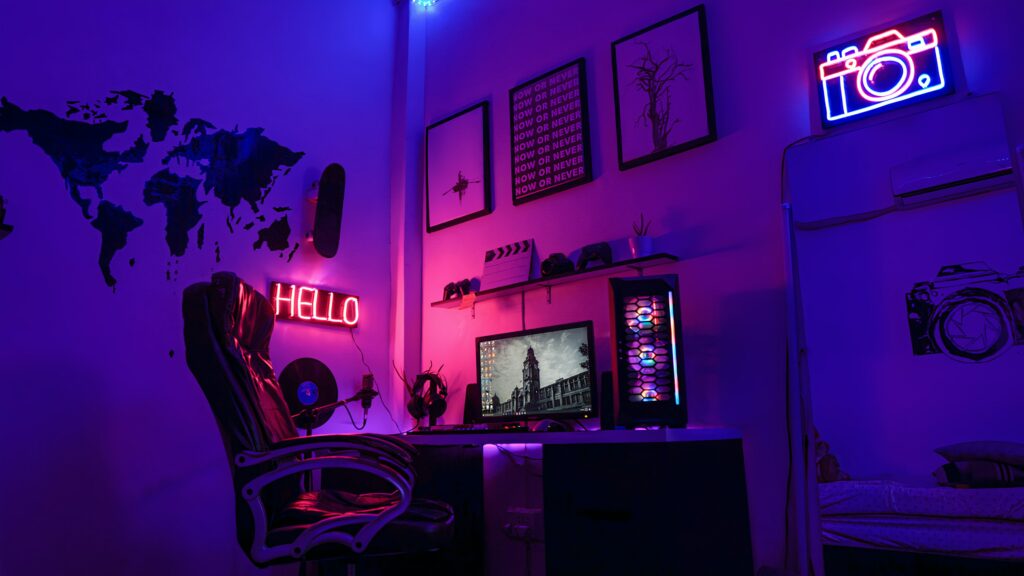
There are several factors that most buyers think about while choosing a gaming machine. Everyone has different preferences, and you should only select the device that ticks most of them. Here are some of them to get you started on the gaming laptop vs desktop dilemma.
Portability
Portability can sometimes be a deal-breaker for gamers who travel often. Usually, choosing a desktop PC is a no-brainer if you only play at your home or don’t care about gaming while you travel. However, for students and young adults who often travel and game wherever they can, nothing beats a gaming machine that can fit inside your bag.
While most modern laptops are pretty lightweight, powerful gaming laptops can weigh as high as 3 kilograms. Yes, the massive 17-inch gaming laptops that most brands offer are heavy compared to regular laptops. However, that doesn’t make them less portable in front of PCs.

Gone are the days of LAN parties where gamers would meet up with their PCs for competitive gaming sessions. Current generation PC builds are bulky enough to make people not carry them around. Although, if you’re an extremist, you could try taking a mini-ITX build around; it’s too big of a risk. Hence, whatever the weight, laptops ace the portability game.
It is quite obvious that laptops own the portability game as it’s just not feasible to travel with a PC.
Upgradability
Upgradability is one of the core factors that brings most users to build their rig. You can’t customize your laptop part by part, but you can do everything (provided it’s compatible) with a PC. You can plan your PC according to your needs, buy future-proof parts, and have room for upgrades while staying under a budget (ignoring the hiked GPU prices right now).
Having a desktop PC for gaming is great, a fixed setup, just enough power to run what you want, and a chance to upgrade at any time that you want. Want more RAM? Shop for compatible RAM sticks and plug them in. No matter how “upgradable” your modern laptop is, it can’t give you better graphics or processing power despite the upgrades. Most of the core components in a laptop are soldered onto their motherboards and are impossible to tinker with.
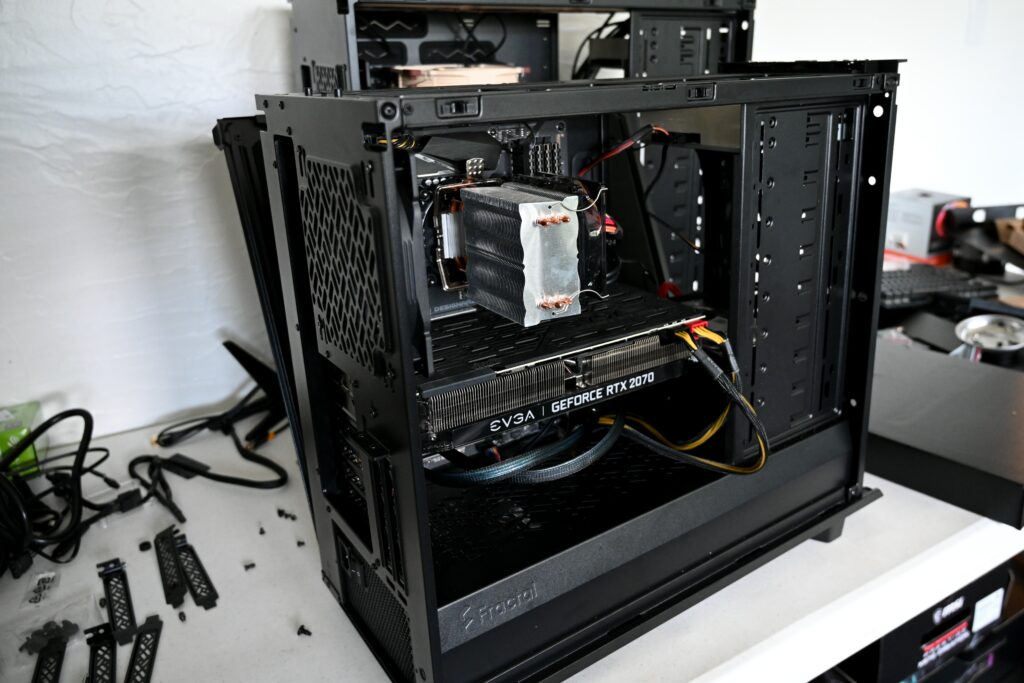
While newer Intel laptops with Thunderbolt support can use external graphics cards, the option isn’t very economical. Hence, for users who prefer long-term usage and upgradability, desktops top the list of choices.
Certainly, desktops win the upgradability game as there is a chance for as many upgrades as one could want.
Performance
This is where things get interesting, and there is a lot of deception when comparing the performance of gaming laptops and desktops. While all manufacturers have similar nomenclatures for mobile and desktop CPUs and GPUs, what you see isn’t exactly what you get.
Of course, the specifications are what matters while comparing the performance of laptops with desktops. If you pick a powerful premium-range laptop, it will outperform an entry-level desktop build. However, if all things are kept equal, desktops have the edge over laptops.
Intel and AMD’s mobile CPUs aren’t as powerful as their respective desktop versions, with some exceptions. However, gaming laptops have come a long way and can pack a lot of power while compact. Likewise, the mobile versions of NVIDIA and AMD GPUs are in no way close to their respective desktop variants.
For instance, while the recent mobile GPUs like the RTX 3060 in laptops have the latest technology, they perform equal to two generations older desktop variants. It’s unfair to compare these without the numbers, but it’s just to demonstrate the gap.
Subsequently, one of the reasons why PCs offer a tremendous amount of performance is because they don’t have any power limitations. Better and powerful CPUs and GPUs will need more power to function, and that can easily be fixed by using a higher-rated power supply.
That said, desktops are superior because of their thermal management: bigger chassis, more room for airflow, and lower temperatures. Eventually, better thermals lead to better performance. Hence, desktops are the way to go for performance-minded users.
Here, desktops have a slight advantage as they offer a lot more performance than anything else.
Value and Cost
If it were 2019, there wouldn’t be room for second thoughts, and desktops would be the winner. However, the present situation calls for evaluating needs and budgets carefully. We configured a PC build on PCPartPicker, a mid-range or moderate-level PC build to give you a clear idea.
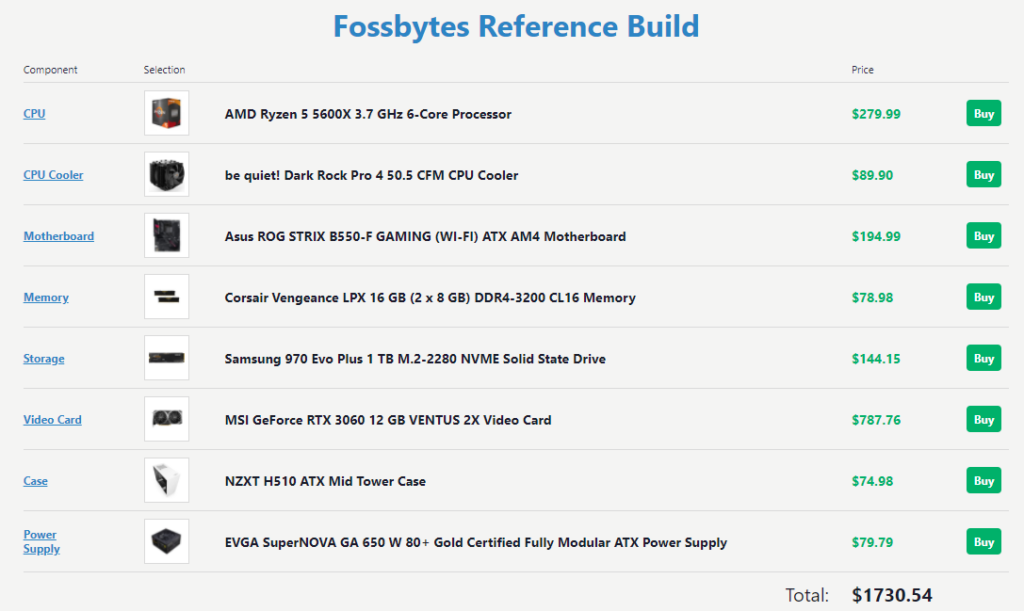
Picking the six-core Ryzen 5 5600X with an RTX 3060 Ti, 1TB M.2 SSD, 16GB of RAM, cabinet, motherboard, and a 650W power supply unit. This build alone costs ~ $1700. Considering the hiked GPU prices due to the semiconductor shortage and other reasons, building a PC has gone expensive.
Now, that’s not the complete cost of building the aforementioned PC. If you’re building a PC for the first time or a fresh new setup, you’ll need to spend it on peripherals too. With the added costs of a monitor, headphones, mouse, and keyboard, the overall budget jumps to ~$2200.
Furthermore, the laptop equivalent (on paper), Lenovo’s Legion 5 Pro with Ryzen 5 5600H and RTX 3060, 512GB PCIe SSD, 16″ IPS display, 8GB of RAM costs $1699.99. To make it fair, add another 8GB RAM stick and the total will cost you just a bit shy of $1750.
Looking at the gaming laptops’ value and prices from 2019, the gap has indeed narrowed in the present. As we move further up, the gap narrows even more in the premium range of gaming laptops while maintaining the performance gap.
Long story short, a desktop PC will still have a better value if you skip the peripherals. However, that isn’t something that everyone does. Hence, gaming laptops sound more feasible right now unless you’re looking for maximum performance.
Hence, it’s a tie when it comes to the cost-efficiency of both.
Which one would you buy?
The ever-long gaming laptop vs desktop debate can only end where you want it to end. The final choice depends on the preferences that we highlighted above. Weight the pros and cons, and choose according to your needs.
Each category needs to be looked upon with a broader perspective; if you plan on staying at one place most of the time, a PC is what you should opt for to bring out the gamer in you. If you plan on moving around or switching places, no gaming machine is more portable than a gaming laptop.
Preferences change with time and differ from person to person. Moreover, the value and performance need highly differ among the masses. In the end, it’s the end-user who can evaluate what’s right. The bottom line is, you can play games on a PC or a laptop, whichever you prefer, but the reason why people think of desktop PCs when they hear gaming is clear.





